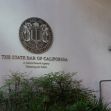After Benjamin Kohn, a disabled attorney, failed the bar exam three times, he sued the State Bar of California for violating the Americans with Disabilities Act when it denied his desired test-taking accommodations. He claimed that the State Bar is not an “arm of the state” and therefore does not have Eleventh Amendment immunity from suit in federal court. In a rare en banc opinion, the Ninth Circuit disagreed, making the State Bar’s immunity consistent with that in every other U.S Circuit.
On July 21, 2023, the Ninth Circuit Court of Appeal removed the decision of a three-judge panel from the United States District Court for the Northern District of California when it decided to “resolve the issue by a court-wide vote of its active judges.” Judge John B. Owens authored the opinion on December 6 with seven concurrences, one partial concurrence by Judge Salvador Mendoza Jr., and two partial dissents by Judges Patrick J. Bumatay and Jennifer Sung. Owens said the Ninth Circuit should “reshape” existing factors that determine immunity “in light of developments in Supreme Court doctrine and our experience applying them.”
The opinion began with a historical overview of State Bar immunity. Owens explained that the California State Bar is classified as the “administrative arm” of the California Supreme Court, responsible for the “admission and discipline” of the State’s attorneys. Kohn’s case focused on the Bar’s admission responsibilities. The Bar moved to dismiss Kohn’s lawsuit based on the Eleventh Amendment, which says “The Judicial power of the United States shall not be construed to extend to any suit in law or equity, commenced or prosecuted against one of the United States…” Owens noted that “Longstanding Supreme Court precedent has interpreted the words of this Amendment to immunize states from suit in federal court by citizens and noncitizens alike.” The State Bar moved to dismiss Kohn’s lawsuit, and Presiding District Judge Phyllis J. Hamilton granted the Bar’s motion to dismiss.
Following that recap, Owens wrote, “Normally that would be the end of the story.” Instead, however, he said it was just the beginning. The opinion went on to consider whether the Ninth Circuit’s opinions “accurately capture(s) the latest Supreme Court thinking.” This led to a review of Mitchell factors, which are currently being used to analyze the meaning of “an arm of the state” within the meaning of the Eleventh Amendment. The five Mitchell factors, which have not been updated since 1982, as they apply to the State Bar are: (1) whether a money judgment would be paid from state funds (known as the “treasury factor”, (2) whether the Bar performs central government functions (3) whether the Bar may sue or be sued, (4) whether the Bar has the power to take property in its own name or only in the name of the state, and (5) the corporate status of the Bar.
On review, the Ninth Circuit determined that the Mitchell factors are “out of step with current Supreme Court jurisprudence because they have been wrongly placing too much “weight” on the effect of the “treasury factor” rather than giving equal weight to the “dignity interests of the state.” As a result, Owens said that a new, three-factor test should be used in future immunity cases. The new test is based on Puerto Rico v. Federal Maritime Commission, a decision written by current Supreme Court Justice Brett Kavanaugh when he was on the D.C. Circuit Court of Appeal. It will replace the Mitchell test, which is no longer “endorsed.”
The new test has only three factors: “1) the tate’s control over the entity; and (3) the entity’s overall effects on the state treasury.” Owens wrote that this “entity-based approach also better promotes consistency, predictability, and finality because it settles an entity’s immunity “unless and until there are relevant changes in the state law governing the entity.”
Regardless, the new Puerto Rico test, though more consistent with the Supreme Court’s immunity analysis, will not change the result in Kohn’s case, Owens wrote, since California law “characterizes the State Bar as a “governmental instrumentality” and has consistently treated it as such. The state legislature has “tasked the State Bar with protecting the public in its “licensing, regulatory, and disciplinary functions” and it “performs functions typically performed by state governments.” In addition, other State laws, such as public records and open meeting laws, treat the Bar as “a government instrumentality.”
The other two factors in the new test are satisfied as well. California government officeholders appoint State Bar officers, and the State Supreme Court “exercises significant control over” its functioning. Regarding the treasury, the State Bar “is responsible for its own debts and liabilities.”
Owen sums up the decision as “putting us in good company.” He wrote, “All the other federal circuits to have considered the question have agreed: State bars are arms of the state and enjoy sovereign immunity under the Eleventh Amendment.”
The Ninth Circuit opinion, Owens wrote, “update(s) our arm of the state jurisprudence to better reflect the Supreme Court’s latest guidance and affirm our precedent that the California State Bar is entitled to immunity from suit in federal court.” The case was remanded to the original three-judge panel for consideration of remaining issues.






